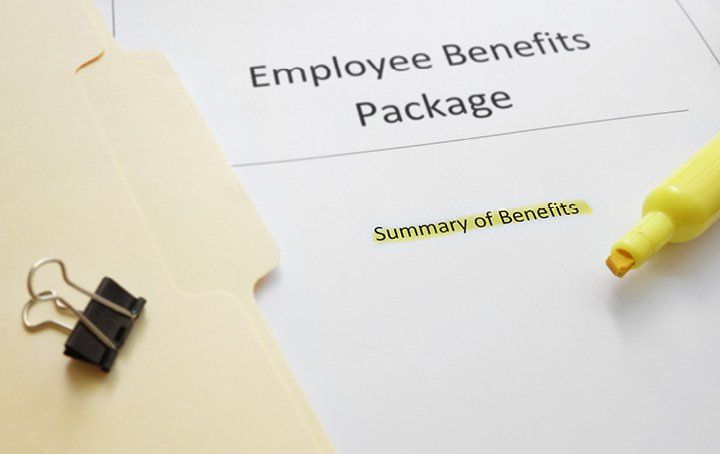
The Tax Commissioner has successfully argued that more than $1.6m deposited in a couple’s bank account was assessable income, not a gift or a loan from friends.
The case of Rusanova and Commissioner of Taxation is enough for a telemovie. The plot features an Australian resident Russian couple ‘gifted’ over $1.6m in unexplained bank deposits, over $67,000 in interest, the Russian father-in-law seafood exporter, a series of Australian companies, and the generous friend loaning money in $20,000 tranches.
The crux of the case before the Federal Court is whether you can prove to the Australian Tax Office (ATO) that unexplained deposits should be treated as gifts or loans and what happens when the Tax Commissioner thinks otherwise? If the Commissioner suspects the deposits are income, he can issue a default tax assessment and decide what tax should be paid. The burden of proof is then on the taxpayer to prove the Tax Commissioner wrong.
The unexplained deposits
Between 2012 and 2016, an Australian resident husband and wife had an estimated $1,636,000 deposited into their bank accounts. The ATO became curious when neither spouse had lodged tax returns in the mistaken belief that they had not earned any income.
The money deposited, they said, was a gift from the wife’s father and therefore not assessable income. Curiously, there were no records produced to support the deposits and not a single text or email notifying that money had been remitted, or acknowledging its receipt.
In addition, a friend of the couple deposited money into the husband’s account including a series of $20,000 transactions over about a week. These, the friend said, were interest-free loans with no agreed terms but an expectation that they would be repaid. The friend could not remember how he was requested to make the loans and there were no loan documents, emails, or texts disclosed to support the loans. Around the same time as the loans were being advanced, there was evidence of the husband ‘repaying’ amounts in excess of what had been lent. In addition, documents show the husband transferred a Porsche Cayenne to his friend in Russia, said to be repayment of the loan.
Compounding the issue were the four directorships of Australian companies held by the husband, none of which had lodged tax returns. One of the companies was a seafood wholesaler, distributing the product of his father-in-law’s American registered Russian export company. The dedicated son-in-law stated that he was merely trying to develop his father-in-law’s business during 2010 and 2016, without remuneration.
Contesting the Tax Commissioner
In 2017, a covert tax audit utilised entries in the couple’s bank accounts to assess their income tax liability and the ATO issued a default assessment based on the unexplained deposits and expenses. The couple objected to the assessment and this objection was partly allowed. A second assessment was then issued to which the couple again objected before the Administrative Appeals Tribunal (AAT) on the grounds that the assessment was excessive.
Can the Tax Commissioner really decide how much tax you should pay?
The Tax Commissioner has the power to issue a ‘default assessment’ for the amount he believes is owing from overdue tax returns or activity statements. The assessment is the amount the ATO believes is owing, not what has been declared.
The problem with a default assessment is not just the Tax Commissioner deciding how much tax you should pay, it is the potential addition of an administrative penalty of 75% of the tax-related liability for each default assessment issued. This penalty may be increased to 95% of the tax-related liability in certain circumstances for taxpayers who have a pattern of non-compliance.
But, here is the problem for the couple. While genuine gifts of money are not taxable, the burden is on the taxpayer to prove that the gift is truly a gift, if the ATO asks. The AAT held that, “absent any reliable evidence..., there is no proper basis to make any findings as to whether the deposits constitute part of the applicants’ taxable income or not.”
The Tax Commissioner can rely on a “deficiency of proof”.
The couple’s stance that the deposits were either gifts from the father or loans from a friend were rejected by the AAT. This is despite an affidavit and evidence from the wife’s father stating that the amounts transferred to them were gifts. The couple did not demonstrate what their income actually was to prove the Tax Commissioner’s assessment was unreasonable, and they could not substantiate that the gifts were indeed gifts from a very generous father.
The Federal Court dismissed the couple’s appeal with costs, leaving the Tax Commissioner’s default tax assessment and penalties in place.
Avoiding the gift tax trap
A gift of money or assets from an individual is generally not taxed if the gift is given voluntarily, nothing is expected in return, and the gift giver does not materially benefit.
However, there are some circumstances where tax might apply.
Gifts from a foreign trust
If you are a tax resident of Australia and the beneficiary of a foreign trust, it’s possible that at least some of the amounts paid to you (or applied for your benefit) will need to be declared in your tax return. This applies even if you were not the direct beneficiary of the foreign trust, for example, a family member received money from a foreign trust and then gifted it to you. This applies to cash, loans, land, shares, etc.
Inheritances
Money or property you inherit from a deceased estate is often not taxed. However, there are circumstances where capital gain tax (CGT) might apply when you dispose of an asset you inherited. For example, if you inherit your parents’ house, CGT generally does not apply if:
- The property was their main residence; and
- Your parents are Australian residents for tax purposes; and
- You sell the property within 2 years.
However, CGT is likely to apply if for example:
- You sell your parents former main residence more than 2 years after you inherit it; or
- The property you inherit was not your parents’ main residence; or
- Your parents were not Australian tax residents at the time of their death.
Managing the tax consequences of an inheritance can become complex quickly. Please contact us for assistance when planning your estate to maximise the outcome for your beneficiaries, or managing the tax implications of an inheritance. These issues are often not taken into account if you are drafting or updating a will.
Gifting an asset does not avoid tax
Donating or gifting an asset does not avoid CGT. If you receive nothing or less than the market value of the asset, the market value substitution rule might come into play. The market value substitution rule can treat you as having received the market value of the asset you donated or gifted when calculating any CGT liability.
For example, if Mum & Dad buy a block of land then eventually gift the block of land to their daughter, the ATO will look at the value of the land at the point they gifted it. If the market value of the land is higher than the amount that Mum & Dad paid for it, then this would normally trigger a CGT liability. It does not matter that Mum & Dad did not receive any money for the land. Mum & Dad might have a CGT bill for land they gifted with nothing in return.
Donations of cryptocurrency might also trigger CGT. If you donate cryptocurrency to a charity, you are likely to be assessed on the market value of the crypto at the point you donated it. You can only claim a tax deduction for the donation if the charity is a deductible gift recipient and the charity is set up to accept cryptocurrency.
Need Help with your Business, Bookkeeping, Tax or SMSF requirements?
If you would like a little help, please get in touch with us for assistance. We can help with your business, bookkeeping, tax and SMSF requirements.
Please also note that many of the comments in this publication are general in nature and anyone intending to apply the information to practical circumstances should seek professional advice to independently verify their interpretation and the information’s applicability to their particular circumstances. Should you have any further questions, please get in touch with us for assistance with your SMSF, business, bookkeeping and tax requirements. All rights reserved. Brought to you by RGA Business and Tax Accountants. Liability Limited by a scheme approved under Professional Standards Legislation.















